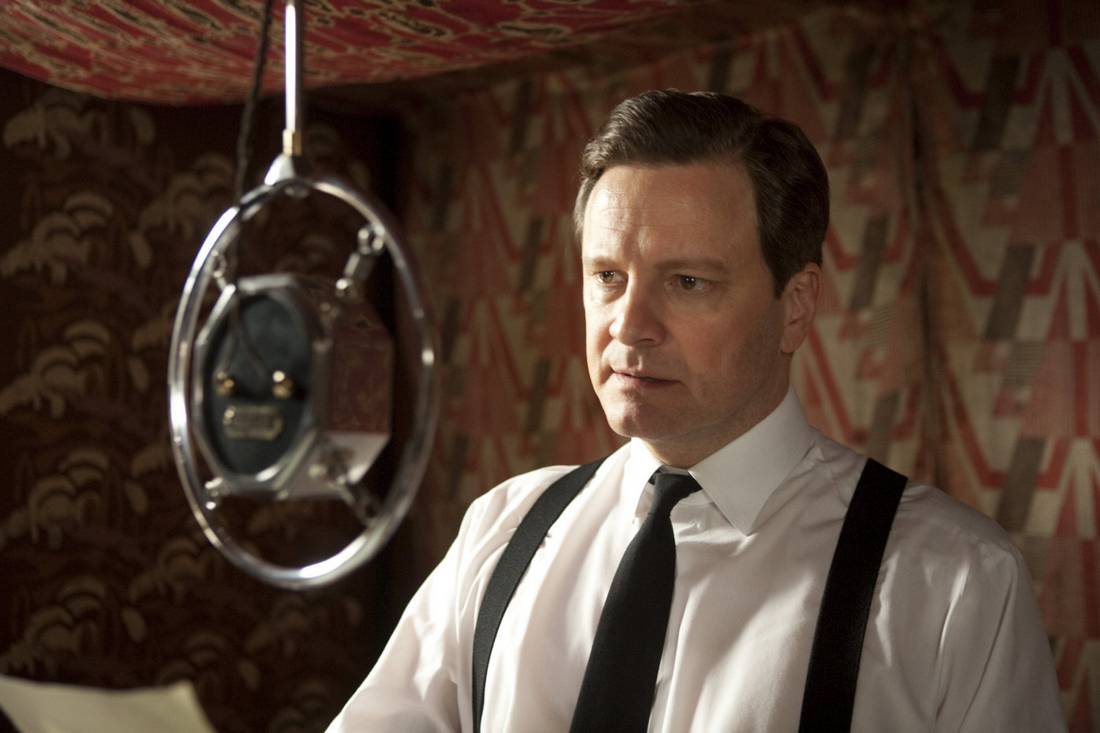I enjoyed “The King’s Speech” more than I thought I would, as it never gets dry, always maintaining a momentum from relate-able human drama. Colin Firth and Roger Hammond do a great job in what is really a ‘bro-mance’ about a King learning to overcome an embarrassing problem, while also relating to one of his common subjects.
Given that the film has been out for a number of weeks, I was surprised that the late-Saturday afternoon screen that I attended was nearly sold out. The demographics in the theatre were across the board. As they say, this movie really ‘has legs’ to its box office potential.
Recent discussion of editing the film’s language such that it could drop from an R-rating to a more audience-friendly PG-13 are interesting, in that the vast majority of the film’s swearing takes place during outburst scenes that are somewhat crucial to the plot. Toning them down could undermine the drama, although it is unfortunately that many teens or ‘tweens’ are not able to see this film. If anything, a younger audience would benefit most from the film’s message.
Update: There has been much discussion recently about how the swearing in the film, notably during a couple of outbursts integral to the plot, caused it to receive an ‘R’ rating. The U.S. distributors of the film are the Weinstein brothers and they are poised to release an edited version with a bit of the swearing muted in some fashion that one has to assume will not be very smooth. Predictably, the director and cast have expressed displeasure over this move.
I’m a bit caught on this one, siding for the artistic integrity of the film needing to remain intact. Although, I have spoken with a few people who would like to bring junior high or younger kids to the film – the film has a great message to it about overcoming a problem – yet they are hesitant due to the ‘R’ rating. It’s a shame that a wider audience won’t see it for that reason. From a business standpoint, obviously the Weinstein’s want to make more money and that money tends to find its way into the funding of other independently-produce films, so that isn’t necessary a bad thing either.
Just the same though, they should have thought about this back before they shot the scenes. Yes, no one could have predicted that it would become as wide of a success as it has become… but they had to know that the ‘R’ for an otherwise low-key drama was going to stack the odds of finding an audience against them right out of the gate.
That said, I was disappointed to read that the scenes being contended over might not be historically accurate. The film’s screenwriter, David Seidler, apparently had a stuttering problem that he overcame through swearing outbursts. He actually attributed his own therapy to King George’s character in the film.
Assuming that this is true, it bothers me. That means that the debate is less about defending historical accuracy. Now I’m curious as to what really did help the King overcome his problem, if not those outbursts? While I understand the need for dramatic license – David Fincher’s “The Social Network” has plenty of it – I simply don’t understand why the writer would choose to insert his story into the character in this instant. Amid what is a justified fight for artistic integrity, it does seem like a greater point might be missed in ignoring this footnote to the debate.
- Over-sized KO Transformers Reviewed - March 29, 2025
- Recapping Criterion’s Lone Wolf & Cub Films - December 29, 2024
- Moonlighting (1985) – A Series Review - September 12, 2024
